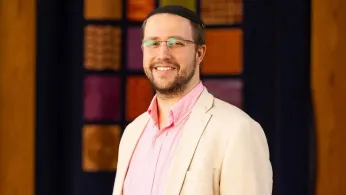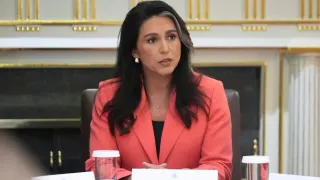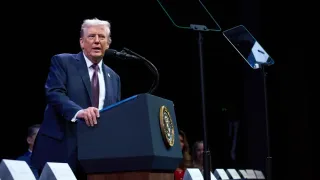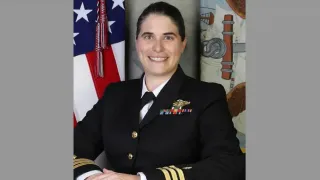
Sep 9
Yeshivat Chovevei Torah Ordains First Out Gay Rabbi in Historic Milestone for Queer Inclusion
READ TIME: 3 MIN.
In a ceremony held on June 12, 2025, Yeshivat Chovevei Torah (YCT), a leading Orthodox rabbinical seminary located in Riverdale, New York, broke new ground by ordaining Rabbi Tadhg Cleary, an openly gay rabbi from New Zealand. Cleary’s ordination, which took place alongside three other graduates, marks the first time in U.S. history that an Orthodox Jewish institution has granted rabbinic ordination—known as semicha—to an openly gay student.
Cleary’s journey to semicha was marked by openness from the outset. Unlike prior candidates who concealed their sexual orientation, Cleary was out before applying to YCT. His admission was predicated on the condition that he would be able to live and study authentically, without hiding his identity. The seminary agreed, setting the stage for a pivotal moment in the evolution of Orthodox Jewish attitudes toward LGBTQ+ inclusion.
YCT’s decision to ordain Cleary marks a significant shift. The seminary faced controversy in 2019 after refusing to ordain another openly gay student, leading many to believe that Orthodox spaces remained closed to queer candidates. The head of school, Rabbi Don Linzer, who oversaw both the previous refusal and Cleary’s acceptance, emphasized that Cleary’s ordination was about recognizing students as whole people—not making political statements.
“We want to be giving semicha to him for the totality of who he is, not to turn him into a symbol or a statement,” Linzer explained, further clarifying that the seminary’s action was rooted in its core values rather than external pressures.
The ordination has prompted intense discussion within Orthodox circles and the wider Jewish community. Historically, Orthodox Judaism has been resistant to LGBTQ+ inclusion due to traditional interpretations of Jewish law, which explicitly prohibit homosexual intimacy. However, Cleary’s ordination highlights a growing tension between adherence to tradition and the evolving understanding of human dignity and inclusion.
While critics have argued that this move challenges the boundaries of Orthodox identity, supporters see it as a necessary step toward greater compassion and acceptance. Many LGBTQ+ Jews have long felt marginalized by religious institutions, and Cleary’s ordination is being heralded by advocacy groups as a beacon of hope for those seeking spiritual leadership without compromising their identity.
Cleary’s story is one of resilience and visibility. Having come out publicly in a 2023 blog post—subsequently linked by YCT on its official website—he has been forthright about his identity. His ordination ceremony was attended by family, friends, and colleagues, many of whom expressed deep pride in his achievement and its broader significance for LGBTQ+ Jews. Cleary has emphasized that his rabbinic calling is rooted not only in faith but in a commitment to build inclusive communities where all individuals, regardless of sexual orientation, are welcomed and respected.
His immediate plans include accepting a pulpit position at a progressive Orthodox synagogue, where he intends to focus on outreach and education, particularly around issues of mental health, LGBTQ+ inclusion, and religious identity.
In contrast, some Orthodox figures and commentators have expressed concerns about the implications for halachic (Jewish legal) standards and the definition of Orthodox practice. Debate continues online and in community forums, reflecting the complexity of negotiating tradition and change in contemporary religious life.
Cleary’s ordination is part of a larger movement toward inclusivity in religious leadership. In recent years, other denominations of Judaism—such as Reform and Conservative—have embraced LGBTQ+ rabbis, but this is the first time an openly gay rabbi has been ordained by a U.S. Orthodox seminary. Advocates argue that religious institutions must evolve to reflect the diversity of their communities and uphold values of dignity and equality.
Cleary’s ordination is not simply symbolic; it has practical implications for countless queer Jews seeking guidance and affirmation in spaces that have historically excluded them. As Rabbi Linzer noted, “This is not about making statements—it’s about making space for all of our students to serve the Jewish people as their fullest selves”.






